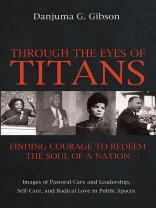Human beings tend to romanticize history or idealize historical figures. This is nowhere more apparent than the civil rights era of the twentieth century. The problem is that when we idealize history, we fail to learn from it. The result is that history repeats itself along with its sins and atrocities. The January 6 Capitol insurrection and the current racial reckoning we are experiencing is unoriginal to the American experience. We have been here before. This book seeks to humanize people we have idealized. Readers are invited to challenge racial hatred and injustice in their own context by looking to the lives of historical figures who have faced the challenges we currently face. By examining the self-care practices of personalities like Ida B. Wells, Fannie Lou Hamer, Benjamin Elijah Mays, and Martin Luther King Jr., this book examines the practices of introspection and self-work these historical figures engaged in that enabled them to fulfill the body of work they are celebrated for today. By humanizing these historical titans, we can emulate similar practices of self-care and introspection in our own lives that can equip us in continuing the ongoing work of dismantling structures of racial hatred and oppression, and promoting freedom, love, equity, and justice to redeem the soul of a nation.
Over de auteur
Danjuma Gibson is the professor of pastoral care at Calvin Theological Seminary, and a licensed psychotherapist in private practice. In addition to exploring psychological trauma, Dr. Gibson’s current research includes exploring the intersection of urbanism, black religious experience, psychoanalytic thought, and socioeconomics.







![Hoes van Brian Schrag & Julisa Rowe: Community Arts for God's Purposes [Chinese] 貼近神心意的社群藝術 Hoes van Brian Schrag & Julisa Rowe: Community Arts for God's Purposes [Chinese] 貼近神心意的社群藝術](https://static.worldofdigitals.com/thumb_webp/740/9781645083740.webp)




